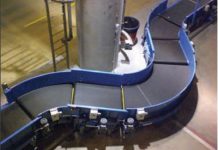
Researchers at Detroit’s Wayne State University are working to bring micro-transit solutions to those who live in affordable housing so they can get to their jobs. The National Science Foundation is helping to fund the project.
Micro-transit, which exists between traditional transit options such as buses and ride-hailing technology, is designed to complement public transportation. Detroit and other cities have begun to adopt the concept, the researchers say, as a means of increasing coverage and reaching more people, particularly in low-density or low-income areas.
However, there is a shortcoming — the service often isn’t available on paths between areas of affordable housing and employment opportunities.
“With the rise of artificial intelligence and increasingly available smart mobility data, the vision of this research project is to create a dynamic routing-prediction system based on learning the hourly mobility patterns between jobs and housing,” says Dongxiao Zhu, associate professor of computer science in the College of Engineering at Wayne State, and the project’s principal investigator.
The researchers will design an artificial intelligence-assisted micro-transit system that transportation officials can deploy to better adapt to place and time variations in the mobility patterns of hourly workers. Geocoded socioeconomic data can be used to identify and reduce mobility disparities.
“The research innovation is expected to provide immediate, low-cost, effective public transit solutions that benefit vulnerable communities in Detroit by significantly reducing transit risk, commute time and distance, and trip cost,” says Zhu.
Wayne State was among 12 teams in the U.S. to receive nearly $50,000 in the first stage for the NSF Civic Innovation Challenge, a competition that targets ready-to-implement, research-based pilot projects with the potential for scalable and sustainable community impact.
The team can apply the funds to testing and other pre-development activities while preparing to submit a full proposal for the second stage, in which four teams will receive up to $1 million to execute and evaluate their projects.











